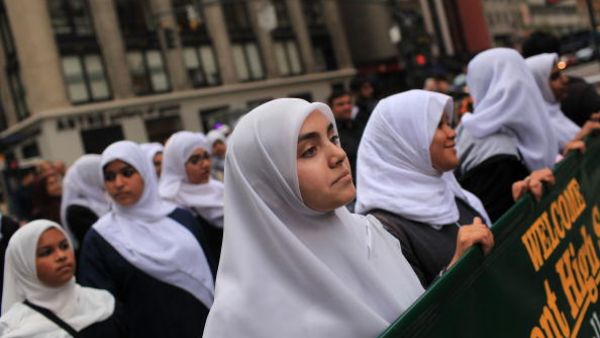Last month in Kuala Lumpur I met the Malaysian politician Nurul Izzah Anwar. Just 30 years old, and formidably well-educated, Nurul is a parliamentarian as well as the mother of two children. Thrown into the political fray by the persecution of her father — Anwar Ebrahim, Malaysia's former deputy prime minister — Nurul has risen rapidly within the opposition People's Justice party.
Admiring glances and whispers from other diners bounced off our table at a fusion restaurant in the smart suburb of Damansara Heights as she spoke frankly and persuasively about Malaysia's frustratingly racial politics, its restless youth population, the changing role of Islam, and the country's foreign relations.
Towards the end of our conversation, she said: "You haven't asked me the big question." Puzzled, I asked: "About what?" Laughing, she replied: "Many western journalists only want to know why I wear a headscarf."
Nurul is, of course, not the first to suffer this distaste for cultural difference. Few 19th century ideas have been as unexamined as the one that secularisation is inevitable, indeed imperative, for all non-western peoples. This expectation that societies entering the modern world will and should grow less religious has always rested on the experience of a tiny minority of Europeans.
Even the outpost of Europe in the New World has failed to banish religion from public as well as private life. Nevertheless, a great part of the world's population is still exhorted to go through the allegedly secularising phases experienced by a few European countries — reformation, enlightenment, whatever.
Turkey's Kemal Ataturk and Iran's Shah Pahlavi imposed brutal regimes of modernisation and secularisation. Their successors have presided over a popular revival of Muslim self-assertion.
All major political parties in Indonesia uphold Islamic causes. According to Karim Raslan, one of the most astute observers of south-east Asia, "there is no need for avowedly Islamist parties" as Islamic issues are now part of mainstream political discourse.
This may be disquieting news at a time when fanatics have slaughtered Christians in Egypt and a leading secularist politician in Pakistan. But then Islamic groups and parties in Indonesia were also crucial in democratising the country after decades of a corrupt, pro-west military dictatorship.
Political Islam has long been developing in south-east Asia in ways very dissimilar from the Middle East and south Asia. This has to do a great deal with the history of Islam in the region, where it was profoundly marked by pre-existing religions and traditions — performing arts, for instance, was often the primary vehicle for spreading Islam.
The winds of religious reformism had long been blowing into south-east Asia from Arabia, especially as national movements against colonial rule took hold. Students and scholars from the Malay peninsula, too, had long been returning from the Middle East with new religious ideas.
These entered a widening public sphere as political awareness grew. Colonial rule had institutionalised racial divisions. The mobilising imperatives of anti-colonial nationalism — the raised banners of ‘we are one country and one people' — made them more tense. As in all colonised multi-ethnic societies, anti-colonial nationalists asked themselves the question: ‘Who are We?'
‘Muslim and Malay' was the answer often given. Far from being effaced, religion and ethnicity became a marker of political identity; and after centuries of un-selfconscious pluralistic practice, Islam turned into one political ‘cause' among many. As Malaysia's old patrician and Anglophilic elite faded, devout Muslims from the countryside and small towns emerged into prominence.
Ebrahim, one such young ‘firebrand' of the 1970s and 1980s, invoked Islamic ideals against the challenges of poverty and corruption.
Many westerners stunned by the Iranian revolution quickly embraced this very big idea. But grandiloquent psychologising ignores not only the unique histories of Muslim countries, but the protean nature of political and religious identity in multi-ethnic democracies.
To see Islamic discourse in mass politics as a vicious anachronism is to see very little. Islam moves in many directions in south-east Asia, and only occasionally against the west or liberal values. Indonesia happens to be the third-largest democracy and one of the fastest-growing market economies in the world.
It is no doubt comforting to cover a vast socioeconomic terrain and its baffling particularities and discontinuities with a blanket explanation like ‘Muslim rage'. But in a multi-layered world of restless identities, the vocabulary of description and analysis must expand. This is less difficult than it sounds.
Most of us have an instinctive understanding of how our own societies work: how differences in ability, income and status play out in public life, how material interests are negotiated and racial-religious conflicts managed. It may not be asking too much to credit other societies with at least some internal complexity while acknowledging that they might do things differently.
The only other option seems to consist of an unattractive moral narcissism, and a rather weird obsession with headscarfs.
Pankaj Mishra is author of Temptations of the West.








